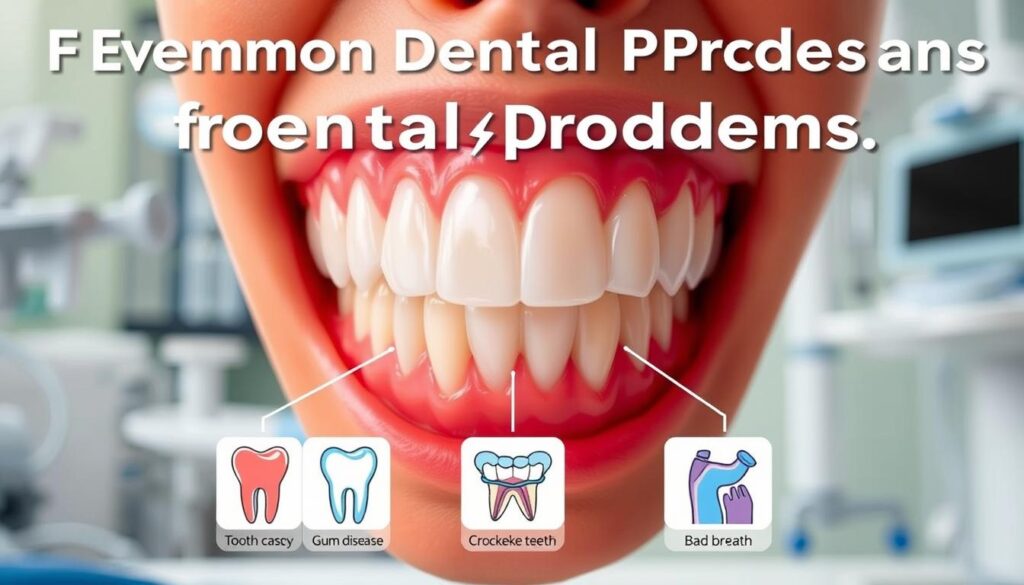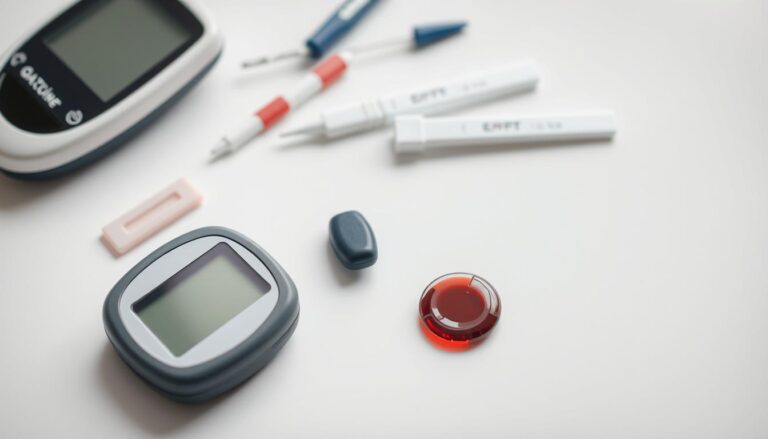Dental Treatment: 5 Best Ways to Improve Your Oral Health
Table of Contents
Your smile is more than just a facial expression – it’s a window to your overall health. Many people underestimate the profound impact of dental treatment and oral health on their well-being. Simple tooth care strategies can transform your life.
Dental health isn’t just about avoiding cavities. It’s a critical component of your overall physical wellness. Poor oral hygiene can lead to serious health complications, including heart disease, diabetes, and even cognitive disorders. By implementing targeted dental treatment techniques, you can protect not just your teeth, but your entire body.
Understanding the connection between oral health and total wellness is the first step toward a healthier lifestyle. Your mouth is a gateway to your body’s internal systems, and maintaining it requires consistent, thoughtful care.
Key Takeaways
- Oral health directly impacts overall physical well-being
- Consistent dental care can prevent serious health issues
- Simple daily habits can significantly improve tooth care
- Professional dental treatments are crucial for long-term health
- Prevention is more effective and less expensive than treatment
To maintain the safety and beauty of your mouth, you can use this nutritional supplement
Understanding the Importance of Oral Health
Your oral health is key to your overall health. Dentistry shows that the mouth is more than for eating and speaking. It’s a complex system that shows and affects your body’s health. Knowing this can change how you see personal health.
The link between oral and body health is deep. Research shows strong ties between gum health and chronic diseases. This makes dental care vital for preventing health problems.
Connection Between Oral and Overall Health
Your mouth is a window to health risks. Science shows many important links:
- Diabetes management can be influenced by gum health
- Cardiovascular disease risk increases with periodontal inflammation
- Respiratory infections may stem from oral bacteria
- Pregnancy outcomes can be affected by oral health conditions
Impact of Poor Dental Hygiene on Well-being
Ignoring oral care can cause big health problems. Look at these striking facts:
| Health Consequence | Potential Impact |
|---|---|
| Untreated Oral Diseases | $46 billion in annual U.S. productivity loss |
| School Disruption | 34 million school hours lost annually |
| Work Interruption | 92 million work hours lost yearly |
Benefits of Maintaining Good Oral Health
Good oral health brings big benefits. Regular dental visits can stop chronic diseases and boost confidence. Your mouth is a mirror reflecting your body’s internal health.
By focusing on oral hygiene, you protect more than just your teeth. You’re keeping your whole body healthy.
Essential Daily Dental Care Routine
Keeping your teeth and gums healthy needs a consistent daily routine. Plaque starts forming on teeth right after you eat. So, cleaning your teeth regularly is key.
Your daily tooth care plan should include a few important steps:
- Brushing teeth twice a day with fluoride toothpaste
- Using the right brushing techniques
- Flossing once a day
- Cleaning your tongue
- Picking the best dental care tools
When brushing, use small circles and short strokes. Gentle brushing along the gum line is crucial for avoiding gingivitis. Electric toothbrushes clean better than manual ones, so they’re a good choice.
Flossing is also vital. It removes plaque between teeth, preventing cavities and gum disease. Dentists say to floss at least once a day for the best oral hygiene.
Don’t forget to change your toothbrush every 3-4 months. Worn-out bristles can’t clean well and may hold bacteria.
Keeping up with oral hygiene can cut cavity risks by 50% or more with regular dental visits.
Other tips include using mouthwash, avoiding sugary drinks, and eating a balanced diet. These habits help your daily dental care and keep your mouth healthy for years.
To maintain the safety and beauty of your mouth, you can use this nutritional supplement
Professional Dental Treatment Options
Keeping your mouth healthy is more than brushing and flossing every day. Professional dental care offers many ways to protect, fix, and make your smile better. Each dental treatment is important for keeping your teeth and overall health in top shape.

Dental treatments cover many areas to meet different needs. They go from keeping teeth healthy to fixing and making them look better.
Preventive Treatments
Preventive dental care aims to keep your mouth healthy and stop problems before they start. Important steps include:
- Regular professional cleanings
- Dental sealants for cavity protection
- Fluoride treatments to strengthen tooth enamel
- Comprehensive oral examinations
Restorative Dentistry Procedures
Restorative dentistry fixes and makes teeth work and look good again. Common fixes include:
- Dental fillings for cavities
- Crowns to cover and protect damaged teeth
- Bridges to replace missing teeth
- Root canal treatments
Cosmetic Dental Solutions
Cosmetic dentistry makes your teeth and smile look better. Advanced treatments can change how your teeth look:
| Procedure | Purpose | Average Duration |
|---|---|---|
| Teeth Whitening | Brighten and remove stains | 1-2 hours |
| Dental Veneers | Correct shape and color imperfections | 2-3 dental visits |
| Orthodontic Treatments | Align teeth and improve bite | 6-24 months |
“Your smile is an investment in yourself. Professional dental treatments can help you maintain both health and confidence.” – American Dental Association
Remember, dental treatment is about more than fixing problems. It’s also about preventing them. Regular check-ups and professional care are essential for good oral health over time.
Diet and Nutrition for Healthy Teeth

Your diet is key to keeping your teeth healthy. What you eat affects your teeth’s strength and condition. So, good nutrition is essential for your dental health.
Some foods can make your teeth stronger, while others can harm them. Here are some tips to protect your teeth:
- Eat foods rich in calcium like cheese, yogurt, and leafy greens
- Choose crunchy fruits and veggies to help make saliva
- Limit foods high in sugar and acid
- Drink water to clean your mouth
Good eating habits are important for tooth care. Acids and sugars can damage dental enamel. When eating acidic foods like citrus fruits, eat them with bigger meals to reduce acid contact.
| Food Category | Impact on Oral Health | Recommended Intake |
|---|---|---|
| Dairy Products | Strengthens Teeth | 2-3 servings daily |
| Sugary Drinks | Increases Decay Risk | Minimize consumption |
| Crunchy Vegetables | Promotes Saliva Flow | 1-2 servings daily |
Choosing the right snacks can boost your oral health. Go for sugar-free gum, nuts, and cheese between meals. These snacks help fight cavities and give you important nutrients.
Research shows that proper nutrition can reduce cavity risk by up to 90%.
Your diet is a strong ally in keeping your teeth healthy. Make smart food choices to keep your smile shining and strong.
Common Dental Problems and Prevention
Keeping your mouth healthy means knowing and fixing common dental issues. Dentistry has many ways to keep your teeth and gums safe from problems. These problems can affect your health in big ways.

Worldwide, many people face dental health problems. Almost 3.5 billion people have oral health issues, with 2 billion having cavities. This shows how important it is to take care of your teeth ahead of time.
Tooth Decay and Cavities
Tooth decay happens when bacteria in plaque make acids that damage tooth enamel. The main reasons are:
- Eating too many sugary and starchy foods
- Not brushing your teeth well
- Not going to the dentist often
- Not getting enough fluoride
Gum Disease Prevention
Experts in endodontics say stopping gum disease is very important. About 19% of adults worldwide have severe gum disease.
| Risk Factors | Prevention Strategies |
|---|---|
| Smoking | Regular dental cleanings |
| Diabetes | Proper brushing technique |
| Poor oral hygiene | Flossing daily |
Managing Tooth Sensitivity
Tooth sensitivity comes from enamel erosion and exposed nerves. Ways to handle sensitivity are:
- Using toothpaste for sensitive teeth
- Avoiding foods that are too acidic
- Brushing with a soft toothbrush
- Talking to your dentist for help
Keeping your mouth healthy needs regular care, expert advice, and being proactive. Knowing about these dental issues helps you keep your smile bright and healthy.
Advanced Dental Treatment and Technology
Modern dental care has changed a lot with new technologies. These advancements make dental care more accurate, comfortable, and quick. Digital tools are changing how dentists work with patients.
Many new technologies are changing orthodontics and dental implants:
- Digital X-rays with 90% less radiation than old methods
- 3D imaging for exact dental implant placement
- Laser dentistry to reduce pain during procedures
- AI-assisted tools for better diagnosis
Dental care now uses amazing new technologies. CAD/CAM technology lets for same-day crowns. Intraoral cameras give dentists a clear view during exams. These tools make treatments better for patients.
New technologies in orthodontics include:
- Clear aligners that work faster
- Digital tooth modeling
- Virtual reality to distract patients
Dentists can now make custom treatments quickly and accurately. From digital impressions to laser treatments, these tools make dental care less invasive and more comfortable.
Technology is changing dental care, making it more precise, efficient, and friendly for patients.
The Role of Regular Dental Check-ups
Keeping your teeth healthy is more than just brushing and flossing. Regular dental visits are key to a healthy smile and avoiding big dental problems. Experts say you should see your dentist every six months for the best care.
Knowing how important dental check-ups are can change how you think about your teeth. Here are some interesting facts about why regular dental visits matter:
- 47.2% of adults over 30 have gum disease
- 26% of US adults have untreated tooth decay
- Oral cancer survival rates jump to 65% with early detection
Importance of Professional Cleanings
Professional cleanings get rid of plaque and tartar that brushing and flossing can’t. These deep cleanings stop oral health problems before they start and keep your teeth and gums healthy.
| Dental Check-up Benefit | Impact on Oral Health |
|---|---|
| Early Detection | Finds problems early |
| Professional Cleaning | Removes hard-to-reach plaque and tartar |
| Cost Savings | Avoids expensive treatments later |
Early Detection of Dental Issues
Regular visits let dentists spot problems early. This stops small issues from becoming big, expensive problems. Dentists can check for oral cancer, find tooth decay early, and treat gum disease before it gets worse.
Maintaining Long-term Oral Health
Going to the dentist regularly is good for your whole body. Studies show that good oral hygiene can lower heart disease risk by 19%. By making dental check-ups a priority, you’re taking care of your teeth and overall health.
Conclusion
Improving your oral health is a journey that needs commitment and smart strategies. With 75% of adults facing gum disease, proactive dental care is key. Your oral health is vital for your body’s well-being, not just for a bright smile.
Regular dental check-ups and preventive care can lower your risk of serious health issues. By following the tips in this article, you can cut cavity risks by up to 60% and heart disease by 50%. Investing in your oral health now saves money and prevents future health problems.
Small, consistent changes make a big difference. Improving your daily hygiene, scheduling dental visits, and making smart food choices all help. The American Dental Association says every dollar spent on preventive care can save $8 to $50 in future treatments.
Your smile is a powerful asset, with 50% of adults seeing it as the most important in social interactions. By focusing on your oral health, you’re not just keeping your teeth. You’re also boosting your confidence and improving your life. Start your journey today and see how dental care can change your health and how you see yourself.
FAQ
How often should I visit a dentist for a check-up?
It’s best to see a dentist every six months. This helps catch problems early and keeps your teeth healthy. If you have special needs, your dentist might say you need to go more often.
What are the most important daily oral hygiene practices?
Brushing your teeth twice a day is key. Use fluoride toothpaste and brush for two minutes. Floss once a day and use mouthwash. Eating right and drinking water also helps your teeth.
How can I prevent tooth decay and cavities?
Brush and floss often and use fluoride toothpaste. Limit foods that are bad for your teeth. Drink water and get dental sealants. Regular dental visits are also important.
What are the signs of gum disease?
Look out for red, swollen, or bleeding gums. Bad breath and loose teeth are also signs. See a dentist right away if you notice these.
How does diet impact oral health?
What you eat matters a lot. Foods rich in calcium and fruits and veggies are good. Avoid sugary and acidic foods. Drinking water and not smoking also helps.
What are the best teeth whitening options?
Professional whitening is usually the best. This includes in-office treatments and take-home trays. Your dentist can help choose the best option for you.
Are dental X-rays safe?
Yes, dental X-rays are safe. They help find problems like cavities and bone loss. Dentists use low amounts of radiation to keep you safe.
How can I manage tooth sensitivity?
Use toothpaste for sensitive teeth and avoid extreme temperatures. Brush gently and keep your teeth clean. If it doesn’t get better, see your dentist.
What are the benefits of dental implants?
Dental implants are great for your smile and health. They’re strong and last a long time. They also help keep your jawbone healthy.
How can I overcome dental anxiety?
Talk to your dentist about your fears. They might offer sedation or other ways to relax. Bringing someone you know can also help. Some offices even have special comforts like music.







